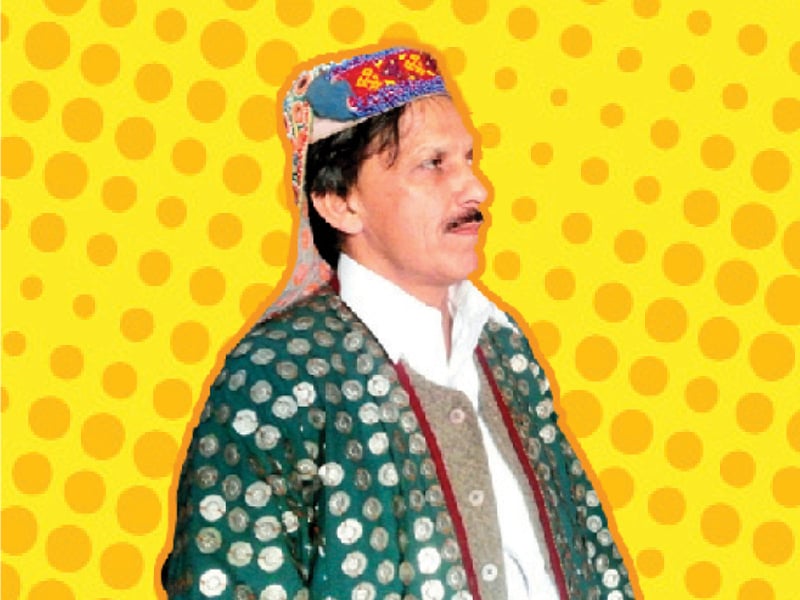
Tucked away inside a cramped room at Gor Gathri, a priceless collection of vinyl records and gramophones gathers dust. Some of the records are also scattered across the residence of Mahir Ali, a music enthusiast and collector.
Ali has boxes full of some 5,000 vinyl records at Gor Gathri, with some dating back to the early 1900s. The records include music in many languages, including Pashto, Urdu, Punjabi, Hindko, English and Farsi. Some of his prized pieces include the first records released by legendary Pashto singer Khyal Muhammad and music from pioneer Pashto movies like Yusuf Khan Sherbano and Musa Khan Gul Makai. He also points out classic records of Noor Jahan, Mala, and Mohammad Rafi, and music from early Urdu and Punjabi movies.
“I can’t fit all my records and players in this small room [at Gor Gathri],” Ali, who has also collected hundreds of audio cassettes along with vintage musical instruments and radios, told The Express Tribune.
The small space given to him by the tourism department also boasts a myriad of other collectables such as vintage fabrics, traditional robes and kaftans, jewellery; the list goes on.
Ali may be strapped for space, but his passion for all things old and representative of a prosperous era in the region’s history knows no bounds. He even pays two mechanics to take care of his record players.
Growing up in Charsadda, Ali was inspired by his father, who would repair old radios decades ago. It is from his father that he has inherited much of his collection.
Fiercely proud of his heritage, Ali is always seen wearing a decorated kaftan. “This is what the Mughals used to wear,” he said.
‘No school like the old school’
There is no denying that there is something special about listening to a vinyl record. The sound is crisp, yet imperfect, which is what makes it ‘human’. It is also a great way to listen to old classics – with their master sound.
“Famous artistes like Naseem Begum have been forgotten by Pukhtun people,” said Mahir Ali, who regrets that today’s youth has little knowledge of Pashto music’s heyday. Ali’s collection includes many records by Naseem Begum, including Raza Dilbara from the movie Awlaad.
“There is no comparison between today’s Pashto music and what people used to produce,” said Latifullah, another music lover who also has an impressive collection of old records. “It was during the last 20 years that our music scene changed,” he added.
According to him, musicians and recording artistes used to take time to record a song and write quality lyrics for it. “Music today is produced in the complete opposite way,” Latifullah said.
It is for this reason Mahir Ali wants the public to have access to his treasure trove of some of the region’s most celebrated music. “This is a major part of our culture and heritage,” he said, hoping he can find a proper place to display his collection and let the public enjoy it as much as he does.
Demand is not the issue. Ali said his stall is always the most popular one at cultural festivals.
“It’s about time this music makes a comeback, as people seem to love it,” he said. Dozens of youngsters frequent his little music centre at Gor Gathri wanting to listen to music on his gramophone or hoping to buy records.
Ali has already sold some of the radios for Rs5,000 with plenty left over. Some of these radios are 80 years old.
“I wish there was a proper place where such music records and players could be accessible to the public, as it will help the public learn more about our musical heritage,” he said.
Much of the music Ali carries in his collection has been converted to compact disc (CDs), which makes it more accessible to the public. But he knows there is nothing like listening to the sound of vinyl.
Published in The Express Tribune, May 18th, 2014.











COMMENTS
Comments are moderated and generally will be posted if they are on-topic and not abusive.
For more information, please see our Comments FAQ